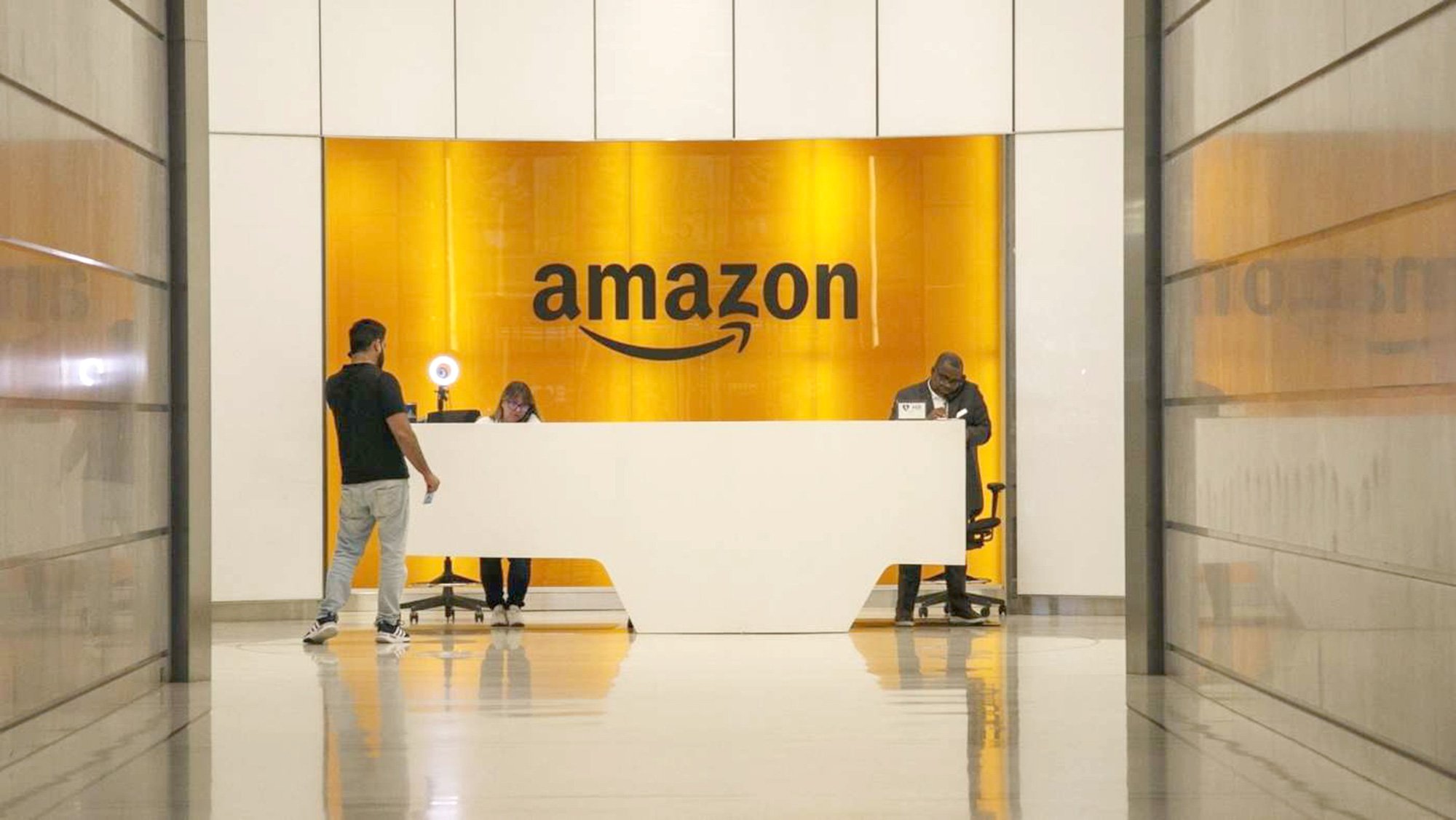
Reception hall of Amazon's office in New York - Photo: SHUTTERSTOCK
The rule was announced in an internal memo sent to all employees by CEO Andy Jassy on September 16 and will take effect on January 2, 2025. It quickly sparked a wave of controversy, with one side promoting face-to-face meetings to increase productivity and the other prioritizing flexibility and work-life balance.
Business trends
Amazon employees now work a hybrid schedule of three days in the office and two days from home each week, starting in early 2023, replacing the remote work schedule during the COVID-19 pandemic.
“Looking back over the past five years, we can be confident that the benefits of working together are enormous,” said Mr. Jassy, sharing his thoughts on the new decision. “We have found that it makes it easier for our associates to learn, model, practice, and reinforce our company culture. Collaboration, ideation, and innovation are also simpler and more effective. Learning from each other is seamless, while the ability to connect with each other is enhanced.”
The New York Times , citing an Amazon insider, reported that attendance will be done by swiping employee badges. All employees will be required to come to the office even if most of their team members work in other offices. Amazon will invest in building more conference rooms and about 3,500 phone booths to serve the needs of employees.
With this decision, Amazon has become the first leading technology corporation in the world to completely abandon remote work or hybrid work. Other technology giants such as Google, Meta... are still maintaining the rule of working in the office only three days a week and show no signs of changing.
More broadly, however, the return-to-office wave has been quietly spreading across most industries in the US for the past two years. In mid-December 2023, Boeing’s commercial aircraft business instituted a five-day workweek, starting after the Christmas holiday. By February 2024, the multinational package delivery service UPS also required employees to come into the office all week.
Even Zoom — the video conferencing app and icon of remote work during the COVID-19 pandemic — has asked employees to come into the office.
Other notable companies that have abandoned remote work include entertainment giant Disney, financial giant Goldman Sachs, and investment bank Bank of America. In their announcements asking companies to return to work, most companies have made similar arguments to Mr. Jassy's recent announcement.
The End of Remote Work: Employees Resent
While popular with business leaders, the requirement to work full-time in the office has been criticized by most employees. After nearly four years of working remotely, many people have built their personal lives around this form of work, so having to go into the office will certainly cause some disruption to their lives.
Immediately after Mr. Jassy's announcement, Amazon's news channels were flooded with mixed reactions.
Tamia Reed, a data center engineer at Amazon Web Services, shared on social media: "For many of us, working remotely is not only a convenience but also a necessity for a more flexible and balanced work life.
This abrupt change runs counter to our efforts to respect diverse work styles and accommodate different individual needs. I hope Amazon will reconsider and find a way to support both the needs of the business and the diverse work preferences of its employees."
Professor Prithwiraj Choudhury of Harvard Business School asserted that decisions like Amazon’s will inevitably have consequences. He pointed out that when a company abandons flexible working policies, it often loses top talent or misses out on potential employees or candidates. “This is a step back in time, it is regressive leadership,” Choudhury commented.
Some analysts even say that Amazon and other companies are actually looking to cut staff. They know the risk of losing people if they force employees to come into the office all week, but they are still pursuing this policy to secretly force workers to quit.
Mixed working does not affect productivity
Flex Index data shows that in Q3 2024, 33% of US companies required employees to come into the office all week. In the technology sector, 79% of companies maintained flexible work policies, while only 3% of companies required employees to come into the office full time.
Meanwhile, a recent study in the journal Nature found that working three days at the office and two days at home did not affect employee productivity. "Hybrid work is a compromise between productivity, performance, and employee retention," said Nicholas Bloom, a professor at Stanford University and one of the study's participants.
Source: https://tuoitre.vn/amazon-cham-dut-ky-nguyen-lam-viec-tu-xa-20240918223110311.htm



![[Photo] Unique folk games at Chuong Village Festival](https://vstatic.vietnam.vn/vietnam/resource/IMAGE/2025/4/10/cff805a06fdd443b9474c017f98075a4)

![[Photo] Phuc Tho mulberry season – Sweet fruit from green agriculture](https://vstatic.vietnam.vn/vietnam/resource/IMAGE/2025/4/10/1710a51d63c84a5a92de1b9b4caaf3e5)

![[Photo] Prime Minister Pham Minh Chinh chairs meeting to discuss tax solutions for Vietnam's import and export goods](https://vstatic.vietnam.vn/vietnam/resource/IMAGE/2025/4/10/19b9ed81ca2940b79fb8a0b9ccef539a)






















































































Comment (0)